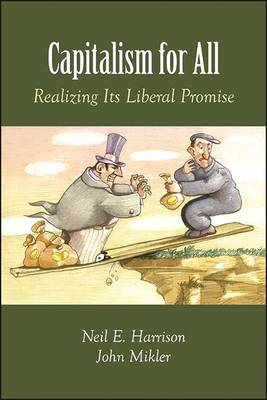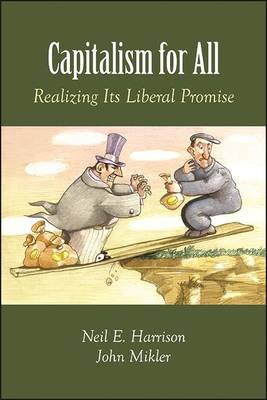
- Afhalen na 1 uur in een winkel met voorraad
- Gratis thuislevering in België vanaf € 30
- Ruim aanbod met 7 miljoen producten
- Afhalen na 1 uur in een winkel met voorraad
- Gratis thuislevering in België vanaf € 30
- Ruim aanbod met 7 miljoen producten
Omschrijving
Demonstrates that a true liberal capitalism has the capacity to enable personal well-being while dealing with new challenges such as pandemics, climate change, and automation.
Capitalism has lost its glamor. In just three decades since it "defeated" a totalitarian Soviet Union, capitalism is today blamed for slowing growth, a dangerously changing climate, inequality, social misery, and a rise in nationalist populism. How did capitalism fall so far from grace? Capitalism for All show how, quite simply, the governments of the world's wealthiest countries have forgotten capitalism's initial purpose. It was born out of a liberal philosophy that values the competition of ideas and goods in the service of social progress while respecting the individual and preventing excessive power. Yet, with the aid of governments, giant corporations, or "MegaCorps," have usurped power, dominated markets, and reduced competition. The result is not liberal capitalism but what Neil E. Harrison and John Mikler term "CorpoCapitalism," which results in an unhappy populace seeking radical political change while challenges like climate change continue to race forward largely unchecked. Capitalism for All explores how CorpoCapitalism came to be, argues that it is not inevitable, and explains how governments can wrest back power and create a capitalism for all.
Specificaties
Betrokkenen
- Auteur(s):
- Uitgeverij:
Inhoud
- Aantal bladzijden:
- 246
- Taal:
- Engels
Eigenschappen
- Productcode (EAN):
- 9781438486970
- Verschijningsdatum:
- 1/01/2022
- Uitvoering:
- Hardcover
- Formaat:
- Genaaid
- Afmetingen:
- 152 mm x 229 mm
- Gewicht:
- 535 g

Alleen bij Standaard Boekhandel
Beoordelingen
We publiceren alleen reviews die voldoen aan de voorwaarden voor reviews. Bekijk onze voorwaarden voor reviews.











